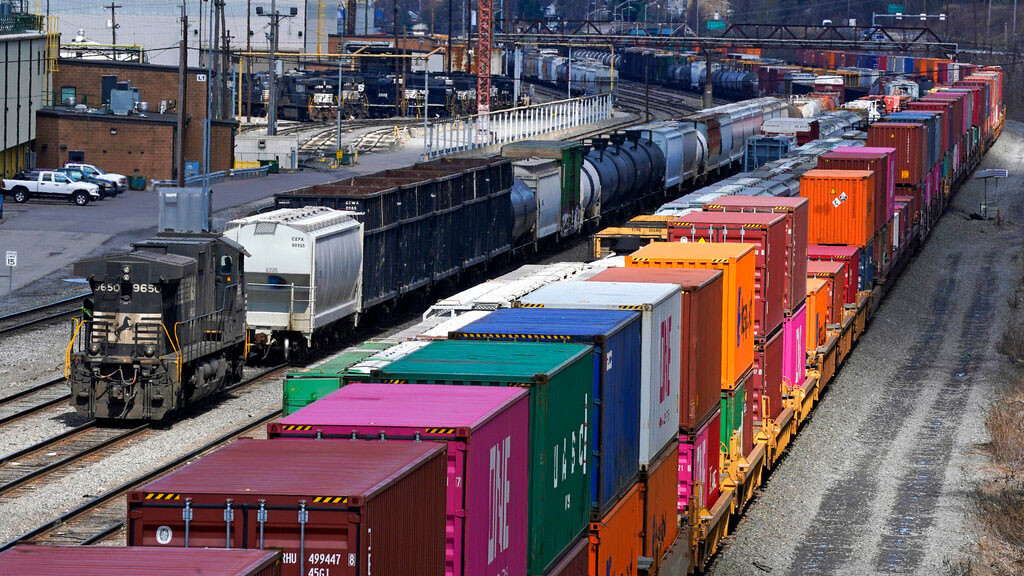Rail workers seem close to a strike again. Here’s why it matters.

If rail workers decide to strike over these contract negotiations, the first nationwide rail shutdown in three decades. AP Photo/Gene J. Puskar, File
Once again, the US is on the verge of a railroad shutdown. More than 100 thousand workers across the country could be on strike as soon as December 9th. Union leaders and railroad management had recently reached a tentative agreement to avert a strike. Since then, however, four out of the dozen unions that represent rail workers have voted down those agreements. If one of those unions calls a strike, it would bring the vast majority of the country’s railroad system to a halt. And it would have a profound effect on Illinois, which is the only state to have all seven North American Class I railroads within its borders in some form.
To discuss why the unions are unhappy, what a strike could mean for the supply chain, and how that strike might still be avoided, we were joined by an associate professor of operations management and a journalist from Trains Magazine.
GUEST:
Bill Stephens
Correspondent, Trains Magazine
Gregory DeYong
Associate Professor of Operations Management, Southern Illinois University Carbondale
A fourth rail union has voted no on an agreement brokered by the Biden administration, raising the possibility of a strike next month. https://t.co/mszhmAoxsP
— NPR Politics (@nprpolitics) November 22, 2022
Prepared for web by Owen Henderson
Help shape our coverage on The 21st by joining our texting group and answering weekly questions. To join, text “TALK” to 217-803-0730 or sign up with your phone number below:

